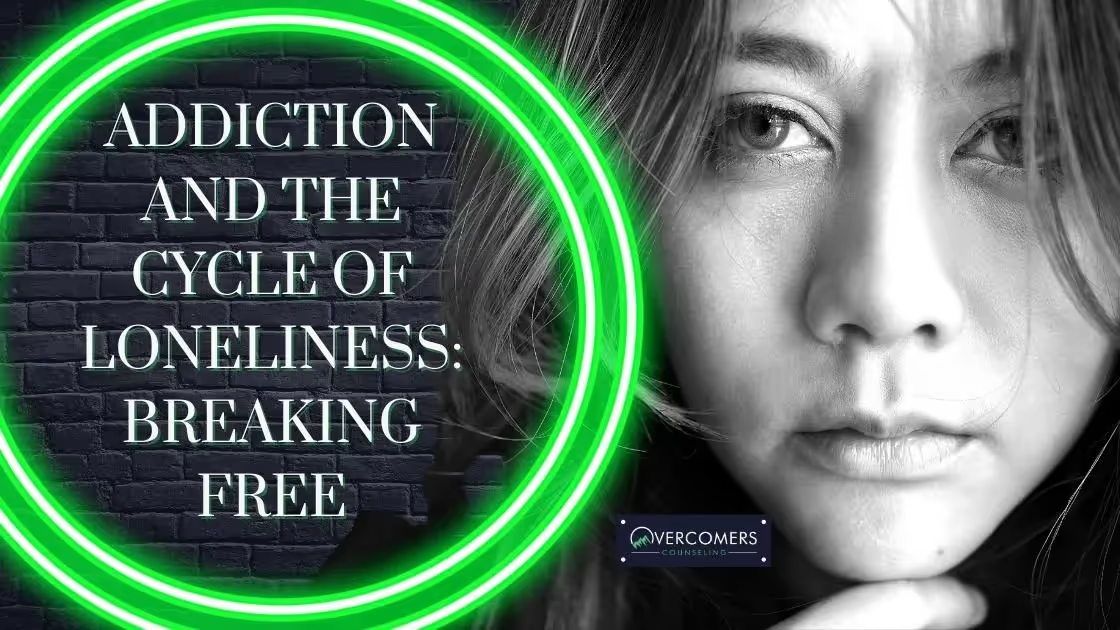Can you break free from addiction and the cycle of loneliness?When you suffer from addiction, you are more likely to suffer from being isolated or lonely....

Can you break free from addiction and the cycle of loneliness?
When you suffer from addiction, you are more likely to suffer from being isolated or lonely.
Ultimately, these two problems can have a cause-and-effect relationship.
Addicted individuals can become lonely and lonely individuals can become addicted—a vicious cycle.
Most recovery and treatment approaches attempt to heal loneliness as soon as possible.
A goal in therapy is implementing a strong positive social support network, bringing people out of a world of isolation and into a world of supportive and sober people.
Social support increases the likelihood of success in recovery dramatically.
Can loneliness have adverse effects on your health?
A recent study found that social isolation and loneliness were associated with a 29% increase in the risk of CHD and a 32% increase in the risk of stroke.
Loneliness can cause blood pressure, a pre-curser for stroke, and coronary heart disease.
In addition, there has been a link between loneliness and a weaker immune system.
Therefore, having a social network system is essential for optimal health.
Some other health concerns associated with loneliness are:
Addiction and the cycle of loneliness are unhealthy for physical and mental health.
People often confuse loneliness with social isolation.
Yet, they share similar aspects.
Social isolation is when someone lacks a solid social network and regular interactions with others.
Loneliness is the uncomfortable feeling of being separated from others.
Or they are feeling alone.
It is entirely possible to feel lonely when you are around other people.
It is also common to live independently and not feel socially isolated.
However, addiction and the cycle of loneliness lead to social isolation eventually.

Feelings of loneliness can make someone feel hopeless while living with a substance use disorder.
How do you know if you are feeling lonely?
People in addiction who suffer from loneliness can have feelings of:
Addiction and the cycle of loneliness can bring you down fast.
Suicide ideation is a rising theme among substance use disorders and feeling lonely.
Always reach out for help if you experience any of these harmful ideas.
Since the Covid-19 pandemic began, social distancing has been the preventative measure for not spreading the disease.
However, it has come with a price.
The social isolation that has resulted from the pandemic leads to mental health issues.
Anxiety, depression, and substance use disorder are more common now than before the social distancing mandates.
How do you know if you are social isolating because of substance use disorder?
Some examples of social isolation are:
Other things that can contribute to social isolation are domestic violence, loss of a loved one, mental health issues, and unemployment.
For example, people in a domestic abuse situation are very likely to isolate themselves from friends and family.
They may attempt to hide the truth about their interpersonal relationships.

One of the most incredible ways to overcome loneliness is to learn how to love yourself.
Meditate or journal to look inward and figure out who you are and what you love about yourself.
Get comfortable with solitude.
There is nothing wrong with enjoying some alone time.
Detach the way you associate the feeling of loneliness and being in isolation.
Figuring out a distinction between the two can help you fight off feelings that are not healthy.
Another significant way to fight off loneliness is to form supportive social networks.
If you are in recovery, then it is essential that you develop relationships with other like-minded people in recovery.
Find support groups like 12-step groups to join.
There are also groups to help if you have suffered domestic violence or even codependency.
Repair friendships that you may have messed up along the way.
Your behaviors could have cut you off from your friends and family with substance use disorder.
Mending these relationships, if possible, is a great way to fight off feelings of loneliness.
If you are in recovery and living a different life, they may forgive you and repair the relationship.
On the other hand, they may not always be willing; however, try not to let it discourage you if you can't improve the relationship.
The third way to treat feelings of loneliness after addiction is to face your emotions head-on.
For so long, you escaped your feelings, and now they may all be coming back at once.
It can be stressful but learning to accept and express your emotions correctly will help you deal with feelings of loneliness.
Again, therapy sessions can be beneficial because they will help you learn to face emotions and learn new coping skills to handle them head-on.
Learning positive coping skills is essential to your recovery process and fighting off awful feelings of loneliness.
Social isolation goes hand in hand with addiction.
Therefore, social support is vital for bringing people out of isolation and helping to maintain sobriety long-term.
Some ways that social support benefits the recovery process are:
Loneliness and isolation are common negative feelings associated with substance use disorder.
However, when someone is new in recovery, it may feel safe to fall back on these old behavior patterns because it can feel comfortable.
However, stepping out of your comfort zone is part of the recovery process and will help you become successful.
The opposite of isolation is social support groups.
Social support groups are the most vital to a successful recovery.
According to a recent report, 'those in recovery with positive social support groups coped better with psychological issues, formed a more positive outlook on life, and found their way more manageable.'
It suggests that positive social support also helps people from relapsing after leaving treatment.
Addiction and the cycle of loneliness do not have to be a way of life.
There is help available to you or a loved one suffering from addiction or loneliness.
Alcohol abuse is a pattern of drinking that leads to problems in one's personal, professional, or social life.
Alcoholism refers to a disease that is characterized by a strong craving for alcohol and an inability to control one's drinking.
Yes, alcohol abuse is a treatable condition. However, it often requires professional treatment to overcome. With the right support, though, anyone can overcome alcohol abuse and regain control of their life. It's important to reach out for help if you or someone you know is struggling. With the right treatment, anyone can overcome alcohol abuse and regain control of their life.
Treatment for alcohol abuse often includes counseling, support groups, and medication. With the right help, your spouse can recover from alcoholism and go on to lead a healthy and happy life.
Some common signs of alcohol abuse include drinking more than intended, neglecting responsibilities, and continuing to drink despite negative consequences
Some resources for family members of addicts include therapy, counseling, 12-step programs, and other support groups. It is important to seek out these resources to get the tools you need to deal with your loved one's addiction. You can also find help for yourself through these resources.